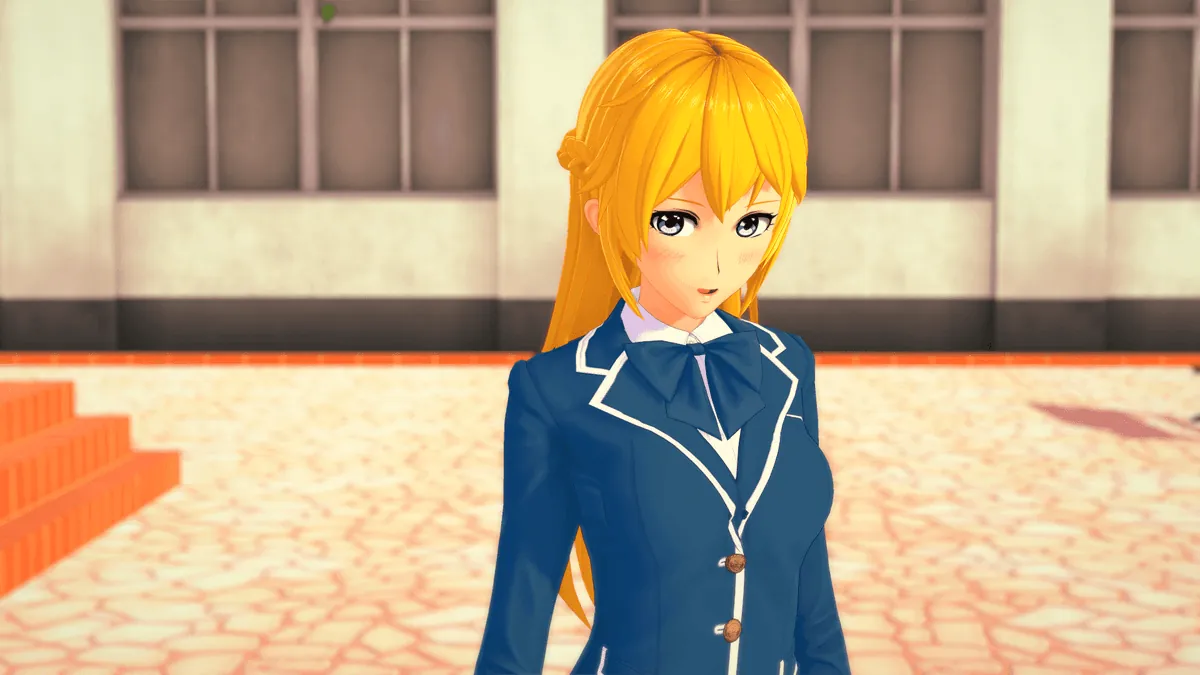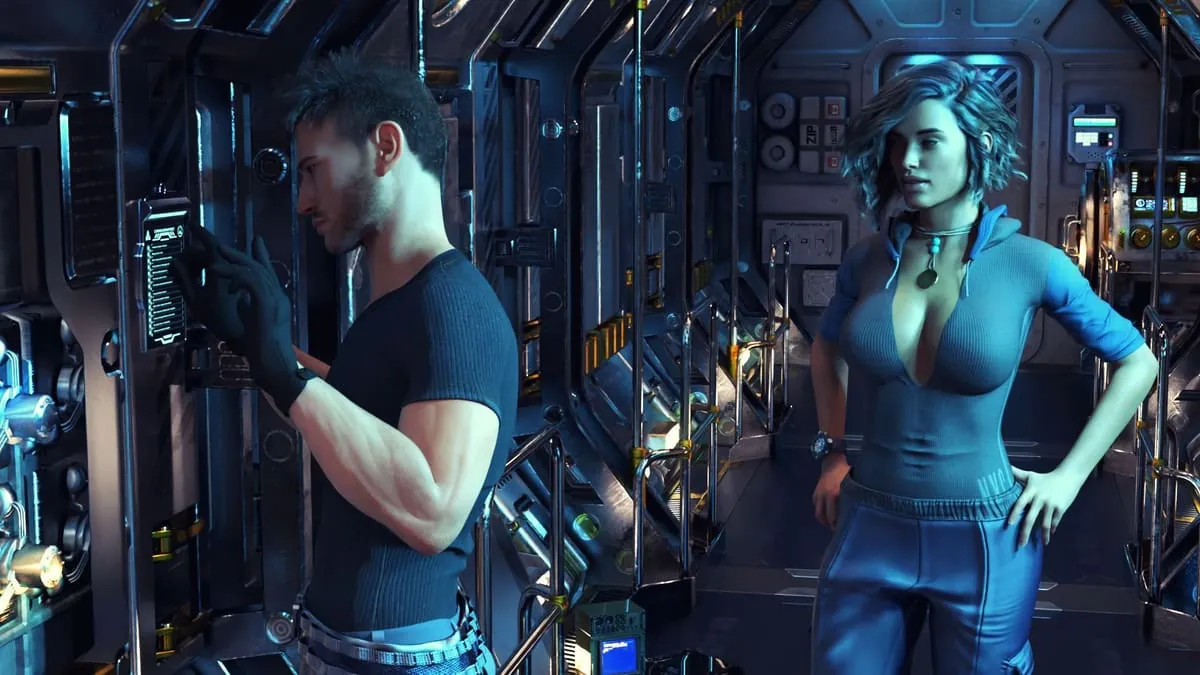
Second Chance
Play Second Chance
Second Chance review
Explore gameplay mechanics, character development, and what makes this title unique in the genre
Second Chance stands out as a distinctive title in the adult gaming landscape, offering players more than just surface-level entertainment. This game combines narrative depth with engaging mechanics that keep players invested in their journey. Whether you’re new to the genre or a seasoned player, understanding what makes Second Chance tick can help you maximize your gaming experience. From character customization to branching storylines, this guide covers everything you need to know about diving into this immersive world and making the most of your playthrough.
Gameplay Mechanics and Core Systems
How the Game’s Progression System Works
Let’s be honest, we’ve all played games where leveling up feels like a chore. You grind for hours just to see a number tick up, with little tangible change to your experience. 😩 The Second Chance game mechanics completely flip this script. The entire game progression system is built around the idea that your character is genuinely growing and changing, not just accumulating stats. It’s one of the most organic and rewarding systems I’ve encountered.
At its heart, progression in Second Chance is driven by doing, not just grinding. 🎯 Want to get better at persuasion? Then you need to engage in conversations and choose dialogue options that challenge you. Interested in mechanical skills? You’ll need to find broken items and attempt to fix them. Every action you take feeds into your character’s development. I remember on my first playthrough, I was so focused on being a charismatic charmer that I completely neglected my character’s financial literacy. When a major story event required a hefty sum of money, I was utterly stuck. It was a brutal but brilliant lesson that your choices in skill development have real, immediate consequences.
The core of the skill development gameplay revolves around a few key pillars:
- Experience Points (XP): You earn XP for completing tasks, succeeding in skill checks, and advancing the story. However, the XP you earn is directly tied to the skills you use. Succeeding at a difficult “Logic” check will grant you more Logic XP.
- Skill Tiers: Skills aren’t just a linear 1-100 scale. They are grouped into tiers—Novice, Apprentice, Adept, Expert, and Master. Reaching a new tier unlocks new, often game-changing, dialogue options and interactable objects in the world.
- The Aptitude Web: This is where Second Chance truly shines. Instead of a boring list of skills, your abilities are represented on a sprawling web. Improving one core skill, like “Social Intuition,” might unlock branches for “Empathy” or “Intimidation.” This visual system makes planning your character build optimization both intuitive and deeply engaging. You can literally see the paths your character could take.
Pro Tip: Don’t try to be a master of everything on your first run. The game is designed for multiple playthroughs. Focus on a core set of 3-4 skills that align with your desired roleplay, and watch how the world opens up in unique ways for that specific build. 🔑
This integrated approach means the game progression system never feels separate from the story. Your growth is the story. Every point you invest and every skill tier you unlock directly alters your available branching storyline choices, making subsequent playthroughs feel genuinely distinct. It’s a masterclass in how to make a player feel powerful and clever, not just high-leveled.
Character Development and Customization Options
If you’re a player who spends more time in the character creator than the actual game, you are in for a treat. 🎨 The depth of character customization in this adult game is staggering, and it goes far beyond just picking a hairstyle. It’s about crafting a persona from the ground up, whose past, personality, and appearance will echo through every moment of your playthrough.
The customization begins with the foundational choices. You don’t just select a class; you define a history. Where did your character grow up? What was their former career? What major life event led them to this “second chance”? These narrative choices aren’t just fluff; they provide starting bonuses to specific skills and, more importantly, lock or unlock certain dialogue paths from the very beginning. Choosing a “Military Veteran” background, for instance, gave me immediate access to intimidating dialogue options I never saw on my “Academia” playthrough.
Here’s a breakdown of what you can tailor:
- Appearance: A robust suite of sliders and options for facial structure, body type, tattoos, and aging details. The art style is realistic enough to be immersive but stylized enough to avoid the “uncanny valley.”
- Personality Traits: This is the real meat of the system. You select core personality traits (e.g., Cynical, Optimistic, Stoic, Impulsive) that will influence your automatic dialogue responses and how NPCs perceive you. My “Stoic” character often had quieter, more observational internal monologues compared to my “Impulsive” one, who would blurt out thoughts without filter.
- Starting Skills: Based on your history and traits, you distribute points into your initial skill set, giving you a head start on your desired character build optimization.
The beauty is that this character customization doesn’t end once you hit “Start Game.” 🚀 Your character continues to evolve. Your hairstyle can change, your weight can fluctuate based on your diet and exercise choices, and even your posture can subtly shift based on your confidence level. It’s a living, breathing persona.
To help you plan your approach, here’s a comparison of some effective character archetypes:
| Archetype | Core Skills | Strengths | Weaknesses | Recommended Playstyle |
|---|---|---|---|---|
| The Silver-Tongued Socialite | Persuasion, Empathy, Charm | Can talk their way out of (or into) anything, builds relationships quickly | Poor physical and technical capabilities, vulnerable in direct conflict | Focus on dialogue, networking, and manipulating situations to your advantage without getting your hands dirty. |
| The Pragmatic Analyst | Logic, Investigation, Technology | Excels at solving puzzles, uncovering secrets, and mastering complex systems | Often misses social cues, can come across as cold or detached | Methodical and observant. Uncover the world’s mysteries through intellect and careful examination of your environment. |
| The Resilient Survivor | Physique, Composure, Streetwise | High durability, can intimidate foes, thrives in high-pressure physical situations | Struggles with nuanced social interaction and intellectual challenges | Direct and forceful. Use your physical presence to overcome obstacles and protect those you care about. |
Decision-Making and Consequence Systems
This is where Second Chance separates itself from the pack. Many games pay lip service to the idea of consequences, but few bake it into their very DNA like this one does. The decision consequences game philosophy here is simple: your choices, big and small, have weight. They ripple outwards, changing relationships, closing some doors while opening others, and fundamentally reshaping the narrative landscape. 🌊
The branching storyline choices aren’t just about picking a “Good,” “Neutral,” or “Evil” response. They are nuanced, often morally grey, and deeply tied to your character’s developed skills and personality. A character with high “Empathy” might see a unique option to gently de-escalate a tense situation, while a character with “Intimidation” might see a way to bully their way through. You’re not just choosing what to say; you’re choosing who you are in that moment.
Let me give you a real example from my playthrough that perfectly illustrates this web of decision consequences game mechanics. 🤯
Scenario: You discover a co-worker, Mark, is stealing from the company to pay for his wife’s expensive medical treatment.
- Choice 1 (The Moralist): Report him to management immediately.
- Consequence: Mark is fired and blacklisted. His wife’s treatment is jeopardized. Your reputation with management improves, marking you as a “company man,” but several of your other co-workers now distrust you.
- Choice 2 (The Empath): Confront him privately and offer to help him find another way, like starting a community fund.
- Requirement: Needs high “Empathy” and a decent relationship with other NPCs.
- Consequence: A complex side-quest unlocks where you must use your social skills to rally support. This can lead to a strong, loyal ally in Mark, but it consumes significant in-game time and resources. Failure can still result in his dismissal.
- Choice 3 (The Opportunist): Blackmail him into being your informant within the office.
- Requirement: Needs “Intimidation” or “Manipulation” skill.
- Consequence: You gain a powerful tool for gathering gossip and getting ahead, but you live with the constant risk of him snapping. This also locks you out of a potential genuine friendship and aligns you with more ruthless narrative paths.
This single decision branched out into three entirely different gameplay experiences, each with its own set of follow-up quests, character interactions, and emotional weight. This is the power of the branching storyline choices in Second Chance.
The consequences aren’t always immediate, either. A seemingly minor lie in Chapter 2 might be exposed in Chapter 6, destroying a relationship you thought was solid. A kindness shown to a stranger might later result in them saving your life when you least expect it. This long-term decision consequences game design encourages you to think carefully and live with your choices, making your story feel uniquely and authentically yours.
When it comes to character build optimization for navigating this complex web, the key is coherence. 🧠 If you’ve built a character with high “Logic” and “Composure,” making a sudden, emotionally volatile decision will likely feel jarring and may result in a negative outcome, as it goes against your character’s core competencies. The most satisfying and successful playthroughs come from roleplaying a consistent character and leveraging their specific strengths to navigate the branching storyline choices presented to you. The game brilliantly rewards you for committing to a role, making the journey of skill development gameplay and the impact of the game progression system feel meaningful from start to finish.
Second Chance delivers a compelling experience that goes beyond typical adult gaming by combining engaging mechanics with meaningful narrative choices. The game’s progression system, character customization options, and branching storylines create a personalized journey for each player. With multiple endings tied to your decisions and relationship development, the replay value encourages exploring different paths and outcomes. The technical presentation, from graphics to sound design, supports an immersive experience across various platforms. Whether you’re drawn to the strategic character building, the emotional narrative elements, or simply enjoying a well-crafted game, Second Chance offers something worth experiencing. Take time to explore different character builds, make varied choices, and discover how your decisions shape the story’s outcome.








